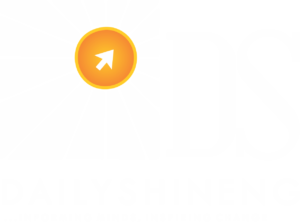…70% Allocated to Capital Projects to Boost Infrastructure Development
By Sunday Apah
Delta State Governor, Rt. Hon. Sheriff Oborevwori, on Wednesday unveiled a ₦1.664 trillion budget proposal for the 2026 fiscal year to the Delta State House of Assembly. Demonstrating a strong focus on infrastructure and socio-economic progress, 70 percent of the budget has been dedicated to capital expenditures.
The budget presentation took place at the Assembly Complex in Asaba, in accordance with Section 121 of the 1999 Constitution (as amended).

Named the “Budget of Accelerating the MORE Agenda,” Governor Oborevwori emphasized that the budget was formulated amid a positive national economic outlook, with Nigeria’s GDP forecasted to grow by 3.9% in 2026.
He highlighted key drivers such as increased oil revenues, steady fiscal and monetary policies, tax reforms, and intensified federal efforts to address insecurity, all of which have renewed confidence in economic growth and improved living standards.

The governor stated that the 2026 budget aims to foster inclusive and sustainable growth, enhance human capital development, fast-track infrastructure projects, strengthen social cohesion, reduce debt levels, and improve resource management efficiency.
Of the total budget, ₦499 billion (30%) is earmarked for recurrent expenditures, while ₦1.165 trillion (70%) will fund capital projects—marking a 70% increase compared to the 2025 allocation.
On expected revenues, Oborevwori expressed optimism that federal allocations will significantly improve following the removal of the fuel subsidy. Statutory allocation, including mineral derivation, is projected at ₦720 billion, making up 43.28% of total revenue and reflecting a 23.75% rise from the previous year.
He also reported that enhancements in Internally Generated Revenue (IGR) collection are anticipated to bring in ₦250 billion in 2026, an 86.5% increase over 2025, driven by professionalized processes and a wider tax base.
The governor added that VAT remittances are expected to contribute ₦120 billion, benefiting from improved national VAT administration. Capital receipts have been intentionally reduced to ₦25 billion to support a no-borrowing policy, while ₦489 billion is forecasted from savings and oil revenue recoveries, illustrating the administration’s commitment to fiscal discipline and prudence.
Personnel expenses are estimated at ₦185 billion, overhead costs at ₦204 billion, and ₦110 billion allocated to social contributions, benefits, and grants, all of which reflect inflationary adjustments and dedication to employee welfare.
Oborevwori identified key focus areas for 2026 funding, allocating ₦450 billion to the Works Ministries to expedite the construction of urban highways, rural and riverine roads statewide.
Education will receive ₦105.086 billion to improve access to quality learning, while ₦50.067 billion is earmarked for healthcare infrastructure upgrades across primary health centers, general hospitals, and tertiary health facilities.
The Delta State Capital Territory Development Agency is set to receive ₦20 billion, reaffirming the governor’s commitment to tackling flooding and expanding urban infrastructure in Asaba. A similar allocation has been made to the Warri, Uvwie, and Environs Development Agency, where extensive road and flyover projects continue to transform the oil city.
In the agriculture, energy, and social protection sectors, the budget dedicates ₦10 billion to food security and agro-investment initiatives; ₦16 billion to bolster electricity supply via a new multi-grid system; and ₦20 billion to enhance social intervention programs aimed at poverty reduction.
Additionally, ₦100 billion has been reserved for direct support to all 25 local government areas, averaging ₦4 billion per council.
Regarding security, the governor reiterated his administration’s intention to deploy modern technology, including drones and advanced surveillance tools, along with providing ongoing logistical and financial support to security agencies.
As the immediate past Speaker of the House, Oborevwori commended the Assembly’s collaboration and urged legislators to expedite the review and passage of the budget to maintain the state’s developmental momentum. He reaffirmed the government’s vision of building “a prosperous, secure, and stronger Delta where no one is left behind.”
In his welcome address, the Speaker of the Delta State House of Assembly, Rt. Hon. Emomotimi Guwor, described the budget presentation as a crucial reaffirmation of the government’s commitment to its citizens.
He praised the governor’s leadership and highlighted key accomplishments under the MORE Agenda, such as major flyovers, expanded road networks, upgraded healthcare facilities, strengthened education systems, and empowerment programs.
Guwor also lauded the governor for approving the Consolidated Legislative Salary Structure (CONLESS) and initiating construction of permanent offices for the Assembly Service Commission.
He assured that the Assembly would conduct a prompt and thorough review of the appropriation bill, emphasizing their dedication to people-focused governance, transparency, and fair development.
The Majority Leader, Hon. Emeke Nwaobi, moved to adopt the governor’s budget presentation, a motion seconded by Hon. Marilyn Okowa-Daramola, Chairperson of the House Committee on Finance and Appropriations.
The appropriation bill has now been formally submitted for legislative consideration.














